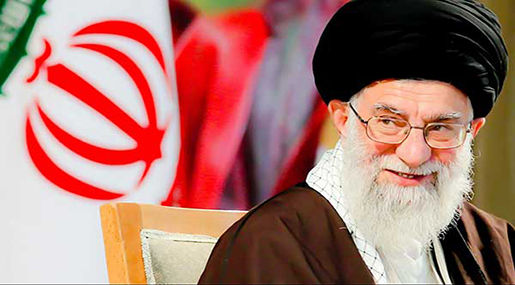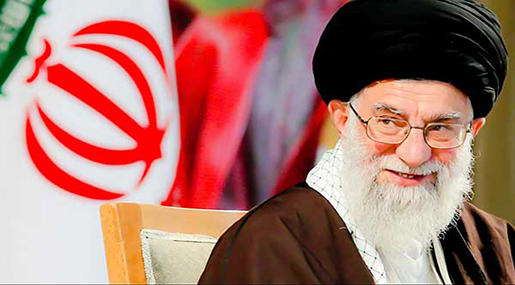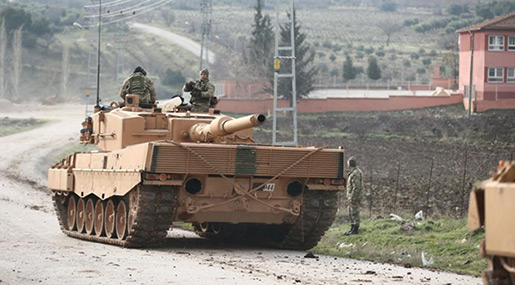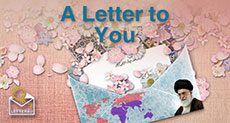The Underlying Message of the Words of Imam Khamenei to the Youth of the West

Mahmoud Rayya
What does it mean that Imam Sayyed Ali Khamenei directs two letters within one year to the same recipient, the youth of the West?

What message [is being sent here] such that the first letter was at the beginning of the year, and the second at the end of the year?
These are questions that must be asked at the outset of our talk about the second letter addressed by Imam Khamenei to western youth a few days ago.
What can be said in this regard is that the sending of the second letter means that the first letter was useful, and left a real impact, otherwise, the leader would not have troubled himself to write a second letter. He would have spent his time on something more useful.So what can be deduced from this fact is that the first letter opened the doors of discussion on more than one level, and has triggered a lot of feedback that was mostly positive, making it necessary to follow up with a new letter that completes the ideas contained in the first letter.Another issue that must be given some attention is that the addressees of the first and second letters are a segment that differs from the ones addressed in messages between nations, cultures, states, and peoples.Imam Khamenei did not address the leader of a nation, nor a state, nor even the intellectuals of a civilization, but rather, he addressed the youth in the West, the whole West.
His speech came in a letter translated into a large number of the world's languages, allowing it to spread, reaching exactly where it had been directed. What helped the speedy spread is that the way the letter was sent was not via a traditional method. It did not follow the path of diplomatic correspondences that remain trapped in embassies. Rather, it was directed through various media, and the available social media [outlets], and through all available means, enabling it to have the greatest impact in its spread, or rather its shine, throughout the world.
The other issue that seems necessary to give attention is the tone in which Imam Khamenei addressed the western youth in both letters. His eminence included all words of affection, and [his words] had a sense of frankness and included expressions of fatherly affection. At the same time, he did not use expressions that appear to force through his opinions, nor expressions that push through one particular way of things, nor did he use methods [of speech] which suggest that what he was saying is the truth that must be taken without discussion.
On the contrary, everything that he said was focused on giving information and asking questions in order to generate discussion, without setting a particular conclusion to this discussion. This allows the minds of these youth to be stimulated, and leads them to look for the facts themselves, away from the method of indoctrination, and a patronizing approach that pushes these youth away, a build a strong barrier between the sender and the receiver.While keeping in mind that such manners are the best way to address the emerging, new generations, the Supreme Leader largely succeeded in this approach, while also not appearing fake or grandiose. Rather, he placed these young people before the responsibility of searching for the truth, and he did this for a serious and fundamental reason, and that is because they are the ones who will shape the future of their countries, and therefore, their understanding of what is happening in today\'s developments will enable them to build a better future for their people.
The Grand Ayatollah requested these youth to improve their understanding of events so as not to fall into the remorse which the previous generation fell into, after they were too late to understand the truth of events that occurred in the past. His Eminence the Leader expressed this idea thoroughly in the first letter that he directed last January, where he said:
"Here, I don't want to deal with the different phobias with which the Western nations have thus far been indoctrinated. A cursory review of recent critical studies of history would bring home to you the fact that the Western governments' insincere and hypocritical treatment of other nations and cultures has been censured in new historiographies. The histories of the United States and Europe are ashamed of slavery, embarrassed by the colonial period and chagrined at the oppression of people of colour and non-Christians. Your researchers and historians are deeply ashamed of the bloodsheds wrought in the name of religion between the Catholics and Protestants or in the name of nationality and ethnicity during the First and Second World Wars."By mentioning a fraction of this long list, I don't want to reproach history; rather I would like you to ask your intellectuals as to why the public conscience in the West awakens and comes to its senses after a delay of several decades or centuries. Why should the revision of collective conscience apply to the distant past and not to the current problems?"
Based on this reality, what is required of today\'s youth is that they avoid falling into the same error. They should not allow the generations that come after them to fall into the swamp of remorse due to the lack of knowledge of what is going on in the events of the day, just as their predecessors fell with regards to the events that took place over the previous decades and centuries.
From here comes the call of Imam Khamenei to the youth in order to derive information from their true sources, particularly with regards to the main issue occupying East and West, and that is the view towards Islam and Muslims. Let not the tendentious media be the means of receiving information, nor the politicians and officials "because I believe that they have consciously separated the route of politics from the path of righteousness and truth", as His Eminence said in his first letter.
The second letter which His Eminence Imam Khamenei addressed carries the practical answer to this fact, as he called for the youth of the West to reflect on what is occurring of "painful issues, which if they do not provide the ground for thinking of solutions, and opportunities for the exchanging of ideas, then the loss will be multiplied".
His Eminence explained this idea in his own way in more detail when he said: "The issue is that if the pains do not lead to the construction of a better future, then they will be reduced into mere bitter memories lacking usefulness".
Based on this idea, the invitation to Western youth was for them to be their own source of information, and the ones who investigate the credibility [of things], and to judge based on that, so he addressed the youth saying:
"I believe that you the youth have the power yourselves, by deriving the lessons from trials of today, to find new ways to build the future, and to block the wrong paths which have led the West to what it is at today".
It is a call that cannot be mistaken or overlooked by common sense, and what is required is that this call continues with full strength in order to reach the farthest places in the world, to work as a bridge that fills gaps made by terrorists between cultures and civilizations, and between religions and nations, which serve the interests of Western [power] elites.
Source: al-Ahed News, Translated by website team



